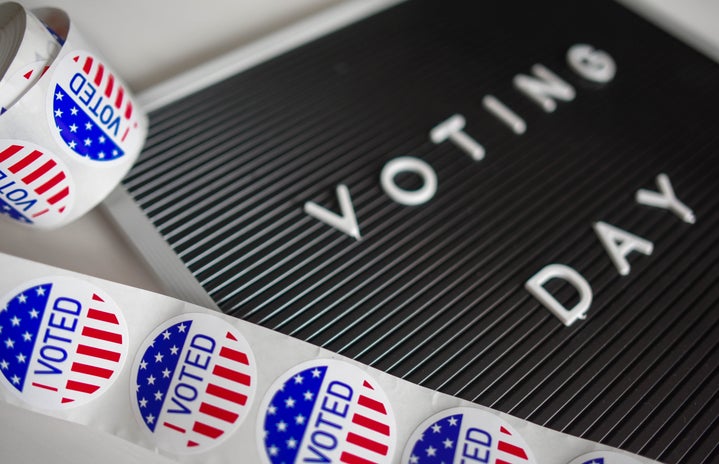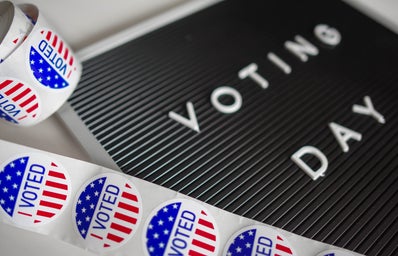As the 2024 presidential election approaches, millions of Americans are experiencing a wave of emotions.
While some may be hopeful or excited, many are experiencing fear, stress and uncertainty, but none of these feelings are abnormal. According to the American Psychological Association’s 2024 Stress Survey, 69% of respondents reported the U.S. Presidential Election as a current stressor.
For the majority of current college students, this will be their first time voting in a presidential election. Casting your first ever vote can be empowering, but it can also lead to increased stress levels both politically and personally. Many college students have friends or peers who may not align with them politically, and this can be difficult to ignore. Political differences often cause strain on relationships
According to a 2022 NBC study more than half of 2-year college students say they would not live with someone of the opposing political party. While there is an argument to be made that college is the time to interact and learn from people of different backgrounds, there is also an argument that at some point it’s more important to “protect your peace.” The American Educational Research Association explains that having peers of similar political beliefs can reduce sociopolitical stress and increase empathy.
There is no denying that political discussions, especially on college campuses, are important. However, as party lines grow deeper, conversations with the opposing side can feel more like a burden than an opportunitySociopolitical stress is incredibly common among college students, but LGBTQ+ students and students of color experience higher rates of it.
Marriage and Family Therapist Laurel Roberts-Meese explains that while some levels of concern over the political state of our country are healthy, too much sociopolitical stress can intensify pre-existing mental health conditions. Sociopolitical stress shows up in more places than your friendships. Changes in appetite, loss of sleep and overthinking are all common “symptoms” of sociopolitical stress.
So, if too much sociopolitical stress is bad for your health, how do you decrease it? For some, turning off the news, avoiding political conversations and engaging in entertaining distractions can all be helpful ways to lessen sociopolitical stress. For others, the lack of news and political conversation can increase stress levels and they find more peace in staying in the loop.
The “solution” to lessening sociopolitical stress is to find a middle ground between avoiding and engaging in political discourse. Watching the election results come in on Nov. 5 is more than okay, rather it is encouraged. However, it is critical to avoid vicarious traumatization or “doom-scrolling.” Many therapists recommend taking breaks from the news to relax your mind, journaling your thoughts and anxieties or stimulating your brain in more soothing ways.
There is nothing wrong with feeling overwhelmed or stressed out about the election, it is inherently a stressful and overwhelming time. The most important thing is remaining mindful of your well being. Prioritizing your health does not make you less of an activist or less of an American. Prioritizing your wellbeing does not have to come at the expense of the nation’s well being, you can care about both.


